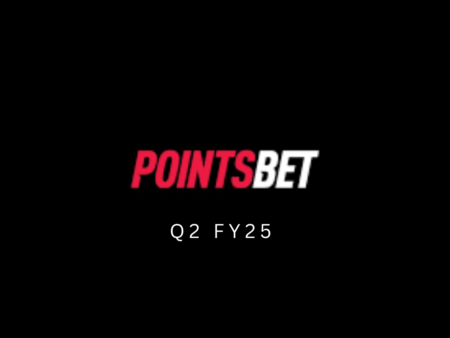In a significant move reflecting deep concerns over Penn Entertainment’s strategic direction and financial performance, HG Vora Capital Management, a prominent investment firm, has announced its intention to nominate three independent directors at the company’s upcoming 2025 Annual Meeting of Shareholders. This initiative marks the first proxy fight in HG Vora’s 15-year history, underscoring the firm’s dissatisfaction with Penn’s current leadership and strategic decisions.
Background on HG Vora’s Involvement
HG Vora, holding a 4.8% stake in Penn Entertainment, has been a notable shareholder with a vested interest in the company’s success. The firm has a history of engaging with companies in the gaming sector, aiming to enhance shareholder value through strategic guidance and leadership restructuring. This latest move to nominate independent directors signifies a proactive approach to address perceived shortcomings in Penn’s governance and strategic execution.
Critique of Penn Entertainment’s Strategic Decisions
Parag Vora, Founder and Portfolio Manager of HG Vora, has been vocal about his concerns regarding Penn’s recent strategic initiatives. He criticizes the company’s leadership for overseeing a period of poor financial performance, attributing substantial losses to a series of failed strategic moves. Vora specifically highlights the misguided Interactive strategy, which he claims has led to reckless spending of nearly $4 billion—an amount exceeding the company’s entire market capitalization—on overpriced, poorly negotiated mergers and acquisitions, as well as media partnerships that have resulted in significant ongoing operating losses due to an inability to execute effectively.
Nominated Directors and Their Credentials
To steer Penn Entertainment towards a more profitable and strategically sound future, HG Vora has nominated three individuals with extensive experience in gaming and financial leadership:
- William J. Clifford: Previously served as Chief Financial Officer (CFO) of Penn National Gaming, bringing a deep understanding of the company’s operations and financial landscape.
- Johnny Hartnett: Held senior roles at Flutter Entertainment and Superbet, providing him with a broad perspective on international gaming operations and strategic development.
- Carlos Ruisanchez: Served as CFO of Pinnacle Entertainment, where he played a key role in shareholder-focused transactions, demonstrating a commitment to aligning corporate actions with investor interests.
These nominees are independent of both HG Vora and Penn’s current management, ensuring unbiased perspectives aimed at revitalizing the company’s strategic direction.
Financial Performance Under Scrutiny
Penn Entertainment’s recent financial disclosures have raised concerns among investors. In its Q3 2024 earnings report, the company recorded total revenue of $1.64 billion, marking a modest 1.2% year-on-year increase. However, the Interactive segment reported an adjusted Earnings Before Interest, Taxes, Depreciation, Amortization, and Rent (EBITDAR) loss of $90.9 million, contributing to a broader decline in financial performance. This downturn has been attributed to the company’s aggressive yet poorly executed expansion into the interactive gaming space, including the acquisition of Barstool Sports and subsequent rebranding efforts.
Historical Context of Strategic Missteps
Penn’s strategic journey has been marred by several high-profile missteps. The acquisition of Barstool Sports, intended to bolster the company’s presence in the sports betting market, ultimately led to significant financial strain. The deal was largely unwound in 2023, with Penn selling its Barstool ownership back to founder Dave Portnoy for a nominal sum of $1. This move was followed by a rebranding of its sportsbook to ESPN Bet, a partnership that has yet to demonstrate the anticipated financial benefits. These actions have contributed to an over 80% decline in Penn’s share price since its peak in early 2021, significantly underperforming both the S&P 500 and industry peers.
HG Vora’s Vision for Penn’s Future
HG Vora’s intervention aims to redirect Penn Entertainment towards a more disciplined and shareholder-focused strategy. By nominating directors with proven track records in gaming and financial management, the firm seeks to instill a culture of accountability and strategic prudence. The goal is to halt reckless spending, optimize capital allocation, and explore untapped opportunities within Penn’s portfolio to enhance shareholder value.
Industry Implications and Investor Reactions
The proxy battle initiated by HG Vora has garnered significant attention within the gaming industry and among investors. Analysts suggest that the introduction of experienced and independent directors could lead to a strategic realignment, potentially improving Penn’s financial performance and restoring investor confidence. The move also highlights a growing trend of shareholder activism in the gaming sector, where investors are increasingly unwilling to tolerate prolonged underperformance and strategic miscalculations.
Conclusion: The Juncture
HG Vora’s unprecedented proxy fight to nominate independent directors to Penn Entertainment’s board underscores a critical juncture for the company. With substantial financial losses stemming from failed strategic initiatives, the proposed board changes aim to usher in a new era of accountability and strategic clarity. As the 2025 Annual Meeting of Shareholders approaches, stakeholders will keenly observe how these developments unfold and the potential impact on Penn’s future trajectory.
FAQs About HG Vora’s Proxy Battle Against Penn Entertainment
1. Who is HG Vora, and why is it involved with Penn Entertainment?
HG Vora Capital Management is an investment firm that owns a 4.8% stake in Penn Entertainment. The firm has expressed concerns over Penn’s financial performance and strategic decisions, prompting it to nominate three independent directors for election at the company’s 2025 Annual Meeting of Shareholders.
2. Why is HG Vora nominating new board members for Penn Entertainment?
HG Vora believes that Penn’s leadership has mismanaged the company’s Interactive strategy, resulting in nearly $4 billion in losses due to overpriced mergers, poorly structured acquisitions, and unprofitable media partnerships. The firm is pushing for new leadership to realign the company’s strategy and improve shareholder value.
3. Who are the three individuals nominated by HG Vora?
HG Vora has nominated:
- William J. Clifford – Former CFO of Penn National Gaming
- Johnny Hartnett – Senior executive at Flutter and Superbet
- Carlos Ruisanchez – Former CFO of Pinnacle Entertainment
These individuals bring extensive experience in gaming and financial leadership, aiming to guide Penn towards a more stable and profitable future.
4. What are the main financial issues at Penn Entertainment?
Penn Entertainment has been struggling financially, particularly in its Interactive segment, which reported an EBITDAR loss of $90.9 million in Q3 2024. The company has also experienced an 80% decline in its stock price since early 2021, underperforming compared to industry peers.
5. What strategic mistakes has Penn Entertainment made?
Some of the key missteps include:
- The $500 million acquisition of Barstool Sports, which was later sold back for just $1.
- A costly rebranding effort with ESPN Bet, which has yet to yield significant returns.
- Overextending its presence in Interactive gaming, leading to ongoing operating losses.
6. Why is this proxy battle significant?
This is HG Vora’s first proxy battle in its 15-year history, signaling serious concerns about Penn’s leadership. It also reflects a broader trend of investor activism in the gaming sector, where shareholders are demanding better corporate governance and financial performance.
7. How has Penn Entertainment responded to HG Vora’s nominations?
As of now, Penn Entertainment has not made a formal statement regarding the nominations. However, the company’s board will need to address these concerns as the shareholder vote approaches.
8. When will the board nominations be voted on?
The nominations will be voted on at Penn Entertainment’s 2025 Annual Meeting of Shareholders. The exact date has not been announced yet.
9. What could happen if HG Vora’s nominees are elected?
If elected, the new board members could push for:
- More disciplined financial management
- Better capital allocation strategies
- A reassessment of Penn’s Interactive gaming investments
- Potential leadership changes within the company
10. What impact could this have on Penn Entertainment’s stock and future?
If shareholders support HG Vora’s nominees, it could signal a shift towards stronger financial oversight and strategic decision-making, potentially boosting investor confidence. However, resistance from the existing board could lead to further uncertainty.
11. What does this mean for the gaming industry?
HG Vora’s actions highlight growing investor scrutiny in the gaming sector, where firms are expected to demonstrate profitability and strategic foresight rather than pursuing costly expansions with unclear returns.


















